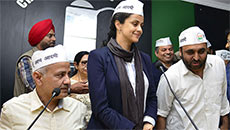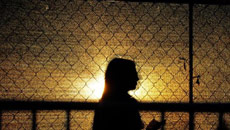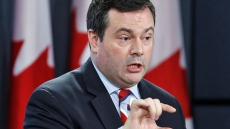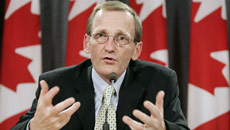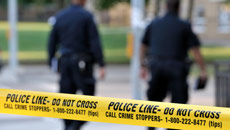OTTAWA - Assisted suicide should only apply to cases involving patients who are never going to get better, the Supreme Court heard today as it confronted the question of whether Canadians have the right to seek help to end their lives.
Civil rights lawyer Joseph Arvay, arguing for the right to physician-assisted suicide, directly addressed the claims of disabled-rights advocates who oppose the concept on the grounds that it suggests that the disabled are better off dead.
"I say — and with the greatest respect I say — it is wrong, indeed it is arrogant of those disabled people to impose their views of what suffering is acceptable and tolerable for others," he told the court.
"Suffering is a very personal, subjective and contextual concept."
Arvay brings an admittedly personal perspective to the case. At age 19, he became a paraplegic following a car accident.
More than 20 years after B.C.'s Sue Rodriguez first challenged the frontier of the right to die, the high court is again hearing a challenge to the existing and long-standing ban on physician-assisted suicide.
As Canada's population ages, the debate has taken on new urgency and created new divisions among the medical, religious and disabled communities, reflected in the dozens of people who lined up two hours before the hearing began to get a seat in the courtroom or in the overflow seating in the lobby.
Among the issues raised by the judges was to whom the right to assisted death ought to apply. Justice Michael Moldaver wondered about diseases which may not have a cure now, but could in the future. Justice Rosalie Abella asked whether someone's right ought to be limited by the illness itself.
"Assisted dying should only be allowed in the most serious cases and not just because somebody wants to; it's because their condition is not going to get any better," Arvay said.
It would be up to Parliament to define how an assisted dying law would be applied, he added
"All we have to do is demonstrate that this blanket prohibition is unconstitutional," he said. "We ask the court obviously to provide Parliament with some guidance as to what would pass constitutional muster."
The court had last considered the issue in 1993, when it ruled in the Rodriguez case that where assisted death is concerned, certain rights enshrined in the Charter of Rights and Freedoms are trumped by the principles of fundamental justice.
But 20 years later much has changed, Arvay argued, including the way charter rights themselves are interpreted.
Some have argued that since the court has already ruled on the subject it is bound by that decision. Arvay disagreed.
"You don't necessarily have to say Rodriguez was wrong, you just have to say you have way more law and way more facts and way more evidence to come to a different conclusion," he said.
The current case found itself before the courts after two B.C. women sought the right to end their own lives following diagnoses of degenerative illnesses.
They argued their rights under two sections of the charter were being violated: Section 7, which sets out the right to life, liberty and security of the person, and Section 15, which grants equality rights.
Rodriguez asked the Supreme Court in 1993 whether existing laws violated her charter rights.
Rodriguez had Lou Gehrig's disease, formally known as amyotrophic lateral sclerosis, or ALS, and wished to end her life, famously saying, "Whose body is this? Who owns my life?"
In its 5-4 decision, the court ruled that while the laws did violate her rights, they were overridden by the principles of fundamental justice.
"Given the concerns about abuse and the great difficulty in creating appropriate safeguards, the blanket prohibition on assisted suicide is not arbitrary or unfair," the court said at the time.
"The prohibition relates to the state's interest in protecting the vulnerable and is reflective of fundamental values at play in our society."
But the time to rethink that has come, Arvay said.
"There has not only been a fundamental change in the parameters of the debate since the Rodriguez case, but it is our clients that revived a debate that's been dormant for 20 years and what a debate it has been," he said.
"We say this is the case that quite simply needed to be heard, whatever the outcome and of course we hope we will have persuaded you that there is only one right outcome."
